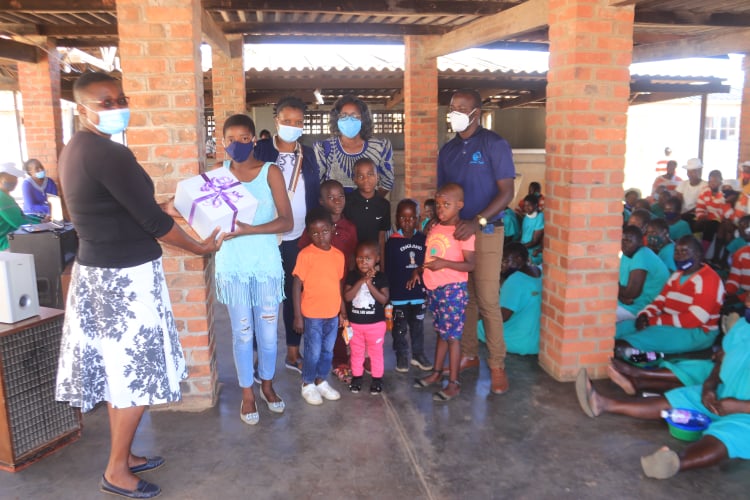|
Getting your Trinity Audio player ready...
|
There is profound trauma and grief that happens to children of incarcerated mothers – a development that calls for society to find ways of protecting such minors.
In an interview with Spiked Online Media, Lovemore Chikwanda, the Executive Director of Jedidiah Trust, an organization in Norton that assists and intervenes in the lives of children with incarcerated parents as well as in rehabilitation and reintegration, said that having a parent in prison mirrors the loss of a loved one.
“There is profound trauma and grief that happens to these kids. Children will always be children and in their early stages of development, they need to have fun as they experiment with various things during the time of playing with their peers. This is not the case with children in prison with their mothers. Indeed, such children’s livelihood is robbed,” Chikwanda said.
Mrs. Gertrude Mandizvidza a trustee of Jedidiah Trust who runs the Good Care Pre-School and the David Mascott School in the same town said that there is often an additional stigma placed on incarcerated mothers, the “What-type-of-mother-takes-herself-out-of-her-child’s-life?”
“But that shame and stigma do not only affect the child in prison. The children left outside of prison become ashamed of who their parent is and what their family has gone through. And they’re told to keep quiet about it. Many such children have to live this life of a lie. These children rehearse the explanation that their mom is on a business trip, or out of town, whenever someone inquires about their mom’s whereabouts. But as the years go by and the barrage of questions continues, sometimes two or three times a day at school, “the secret” becomes harder to keep and their classmates label them liars. Overcoming that shame and stigma is really key to their healing,” Mrs. Mandizvidza said.
School holidays often exacerbate the grief and stigma of separating a mother from her child. And it can be made worse when a child doesn’t have the ability to visit.
“Visiting someone in prison is expensive,” Chikwanda said. “It’s the cost of the transportation, it’s when you get there, you ask yourself whether you have the money to buy something to take with you or to go back home. So, if the guardian doesn’t have the financial means to accommodate that, then she won’t get to see her child.”
Programs like Children Embracing Mothers help to subsidize this hurdle by stepping in to keep families connected. “For organizations like Jedidiah Trust, for communities to come together and say, ‘we see you, we’re here for you,’ that is extremely powerful,” Superintendent Chikarakara, the Officer in Charge at Chikurubi Female Prison, said. “Because it says something that has never been said to these women in a long time.”
The prison superintendent made the remarks just after Jedidiah Trust had concluded a visit to prison during the school holidays. The visit afforded the incarcerated mothers to have a time with their children where they danced together, embraced each other, laughed, and joked together.
After the open discussion about what everyone was feeling and enduring, Mrs. Mandizvidza noticed how much longer and connected the embraces were at the visit’s end. “It was just more intimate, the hugs were longer,” she said, “it was heartwarming.”
The surprise visit to the prison on Mothers’ Day was memorable. Jedidiah Trust provided transport for the kids and their caregivers from as far as Mutoko, Uzumba, and other faraway districts. The trust bought food for everyone. There was an opportunity for their kids from outside and their caregivers to mingle with inmates. It was an emotional reunion. There was music from DJ Dhuta, a cake from Hazel Cakes in Norton as a gift to the mothers from the kids to say happy mothers’ day.






